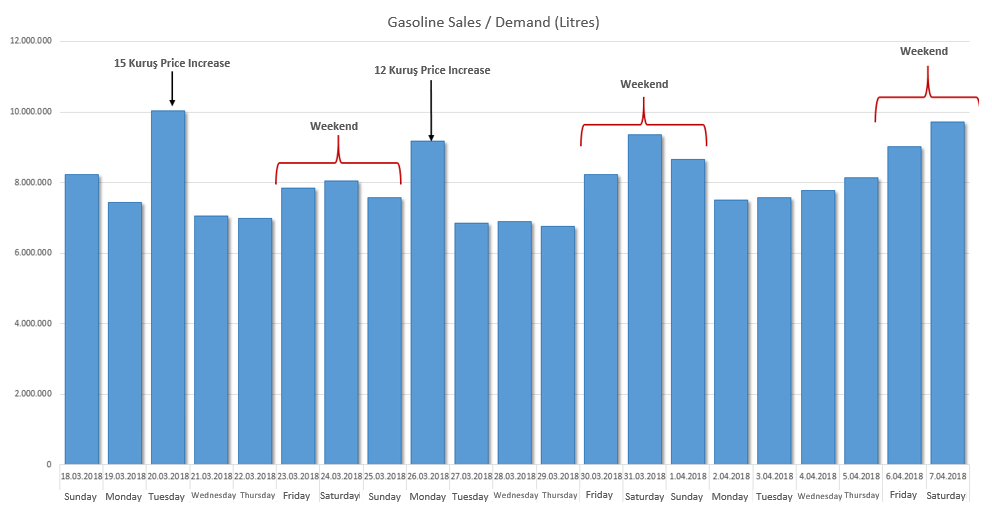 SUMMARY:
SUMMARY:
Ever since we started writing Quant reports, we have been receiving feedback and support from sector workers from time to time. One such example came from an analyst who follows energy data daily. It is a known fact that fuel price increase announcements prompts consumers to fill up their tanks beforehand. While companies can observe this through real data, we have a chance to observe it through available open data.
METHOD:
The data was compiled using gasoline demand of 12th, 13th and 14th weeks from the periodically reported “Enerji İstatistik Bülteni” of the Directorate General of Energy Affairs. Gasoline demand is indicated as million litres.
ANALYSIS:
From a consumption demand perspective, gasoline is a weekend fuel. To put in other words, consumers fill their tanks more often during the weekends. Gasoline demand is consequently relatively higher on Fridays-Saturdays-Sundays. With the increase in international oil prices, an increase of 16 and 12 kuruş was made on March 21st and March 27th respectively, taking into account exchange rates and international fuel prices. The announcement that the price increase will be effective at midnight has boosted the demand for gasoline.

CONCLUSION:
While it is not possible to get a clear figure because of the weekly variability of gasoline sales, it is permissible to conclude that each 1 kuruş increase notice boosts the demand on the day of its announcement by 2%. What is more interesting is that despite being low for a period after the increase, the data shows another rise in demand in the following week or two. This may be due to seasonal factors (more sunny days means more driving). However, it is apparent that the increases do not curb fuel demand. While the short-term effect of price increases is low, we will see with time how it will fare in the medium-term.
